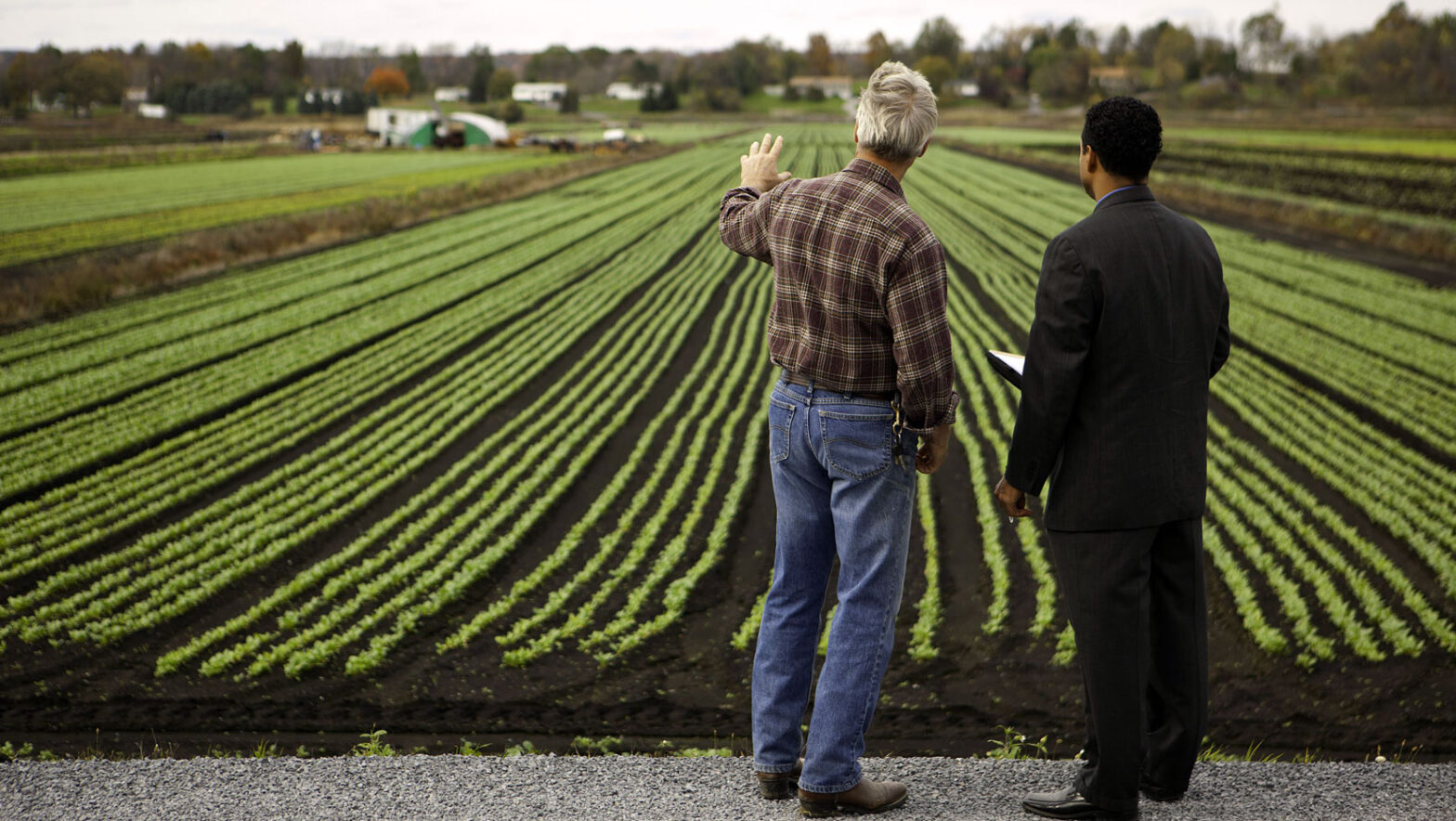
Successful Farming: 5 Effective Tips To Boost Your Agricultural Business
September 7, 2022
Organic Agriculture, Organic Solutions
The Agri industry is one of the most prospering industries in the world. The number of people engaged in agricultural activity has been increasing since the conception of farming activities. And agriculture has the potential to grow in the coming decades as well.
However, despite its growth potential, successful farming involves many resources, management, and knowledge. In addition, several factors, such as environmental, financial, economic factors, etc., significantly impact the outcome in agriculture. Therefore, whether you are in this business for long or just starting, following a sustainable, effective, and manageable approach can ensure success in the long run.
If you’re looking to level up your agriculture business, then this article is for you. Here we will discuss the seven most effective tips for successful farming.
Five key ways to successful farming
You can follow these five tips to boost your farming business:
1. Make sure you have a plan
Planning is fundamental to success in any successful farming business. Since farming works in a completely uncertain and continuously changing environment, a plan can help you prepare for future difficulties as they unfold. Furthermore, by having a well-detailed plan with you, you can stay true to your agriculture’s vision and goals.
It helps you stay on the course and value that your business promotes. Moreover, you do not get diverted in times of uncertainties or hurdles. A proper plan can help you manage adversities most effectively. Farm planning will help you move to a higher level of production and income, starting from where they are now with the resources available to them.
What should your plan include?
- Plan your Short term and long-term goals. Short-term goals are the goals you want to achieve within a 1-3 year time frame, while long-term goals include goals you will achieve after three years. These goals provide you the direction you need to take while deciding other factors in your
- Estimate cost for land acquisition, irrigation pumps, fertilizers, transportation, etc.
- Include risk management criteria. It will help you practically handle unexpected calamities.
2. Conduct Market Research
To profit from your farming business, you need to ensure that you have a market for your goods. Unfortunately, most farmers neglect the importance of market research, so they fail to grow their businesses. Since agriculture is a competitive business, it becomes imperative that you have a ready market for the products you want to sell.
How to conduct market research?
- Talk to other people who are in the same business as you. For instance, if you have a poultry farm, you can talk to someone who already runs a poultry farm and ask how they market their products?
- Visit the different markets and examine what kinds of goods have higher demand but less supply. In this way, you can take advantage by selling higher-in order products but have low supply.
- Build strong and healthy relationships with customers. These customers are your end consumers, so they can help you provide insights into what products others want and prefer.
- Use the internet and analyze the past trends of different goods. This will give you an idea of what is trending over the years and what is not.
3. Finance Management
Agribusiness requires a considerable amount of investment – land acquisition, irrigation pumps, harvesting equipment, etc. There are recurring expenses also for daily operations such as fertilizers, feed supplements, and so on. Keeping a record of each transaction can be a tedious and time-consuming task, but it is crucial for successful farming. Having a balanced cash flow statement of your income and expenditure helps you efficiently manage your farming operation.
Make sure to keep all the essential invoices, receipts, and other relevant documents safe. With digitization, you can even choose to make transactions online. That will remove the hassle of keeping paper documents safe with you. First, however, you must acquaint yourself with digital payment platforms if you want to use them.
Managing your finances will help you analyze your expenses and income. In this way, you can cut unnecessary and extra costs. If you do not know where your money is going, you won’t grow a successful farming business.
4. Suitable types of equipment and tools
With the modernization of agriculture, every farmer must have modern and innovative tools and equipment for successful farming. Outdated equipment may seem affordable, but it wouldn’t help generate a good yield compared to modern and efficient equipment. With access to modern mechanization, you can
- Enhance cropping intensity.
- Ensure extensive area coverage and timeliness.
- Increasing labor productivity.
- Increases crop productivity and profitability.
Choosing the right equipment for different stages of farming is also crucial. Therefore, we have gathered a list of such modern farming equipment.
Farming Equipment
Land Preparation
- Wooden Plunk
- Laser-Guided Land Leveller
- Bullock Drawn Country Plough
- Field Operation of Tractor Drawn Disc Plough
Seeding and Planting Machinery
- CRIDA 2 Row Planter
- Seed Treating Drum
- Field of Operation of Yanji Transplanter for SRI
- Tractor Drawn CRIDA 9 Row Planter
Plant Protection Equipments
- Knapsack Power Sprayer
- Tree Sprayer
- Blower Sprayer
- Power Tiller Mounted Sprayer
Harvesting Equipment
- Groundnut Digger
- Austoft Chopper Harvester
- Cotton Stalk Puller
5. Monitoring and analyzing your progress
Monitoring your progress is a great way to determine where you are and whether you are going in the right direction. With proper monitoring techniques, you can collect quantifiable data. Then you can analyze this data to generate insight to lead a successful farming business.
What are the aspects you can monitor and analyze?
- Soil monitoring – You must monitor your soil fertility, ph level, salinity, and nutritional quality. You can even conduct soil testing consistently to know if your soil is suitable for crop production.
- Crop monitoring – As your crops grow, there are many things you must keep a watch over, such as pests, diseases, infections, crop quality, growth rate, robustness, and structure of your yield. If you ignore your crop, they may get infected by viruses and bacteria, and it might be too late to resolve such issues. Early detection of such problems helps you execute remedial measures to save your crop from infections.
- Livestock monitoring – In livestock farming, keeping a watch over the health of your cattle, chicken is imperative to make sure that they are not suffering from any infection or disease. Having a proper monitoring mechanism helps you identify and detect early signs of weakness, symptoms, etc. Then you can take remedial action to resort to such issues.
- Climate monitoring – The level of yield depends on your climatic condition, which is inherently volatile. Monitoring weather trends and climatic conditions can help you understand and forecast future weather trends. You can install a weather monitoring system in your farms that will alert you on changing weather conditions – temperature, precipitation, humidity, solar radiation, and wind speed.
- Finance monitoring – Keeping a record of your finances helps you better analyze your overall cost and income on farming You can use this data to eliminate or reduce unnecessary expenses. Furthermore, you can also look out for a new venture in agriculture if you have enough savings.
Qualities of a good farmer
Successful farming depends a lot on the farmer’s ability to make decisions, manage the day-to-day operation and handle moments of crisis perfectly.
Following are some of the qualities that every farmer must possess to make farming a profitable and successful business.
- Problem-solving skills – Farmers are constantly exposed to various problems throughout their farming journey. These problems can be related to crops, livestock, weather, fertility of the soil, and so on. A good farmer must be able to understand the situation and make decisions quickly. In addition, they should be able to provide reliable and appropriate solutions for the problems.
- Good communication skills – A good farmer can deliver their message politely and clearly. Such clarity reduces the chances of misinterpretation and also helps in developing a good connection. Farmers interact with laborers, potential buyers, traders, and other intermediaries regularly. If they can negotiate well, then they will lead a successful business.
- Patience – Everything takes time to grow, and the same is valid for farming as well. You cannot expect to see giant trees tomorrow if you planted the seed only a week ago. Agriculture requires a lot of patience, and thus, having the ability to wait is crucial.
Farmers should not rush the process by applying excess fertilizers or supplements to speed up the process. Doing so will only degrade the quality of produce. Moreover, farmers should not get frustrated or stressed if they see things not going according to plan. On the contrary, keeping oneself calm during such a situation helps in solving the problem effectively. - Knowledgeable – Farmers must have thorough knowledge about their farming business – the cropping pattern, livestock, disease recognition, soil and yield qualities, and so on. Moreover, they should remain updated with the latest trends, practices, and government initiatives. Knowing different opportunities and trends can help them take advantage and stay a step ahead of their competitors.
Takeaways
No matter what kind of agricultural business you run or planning to run, these tips can help you boost your business. You must keep in mind that every farming business is different, and what works for one farm may not work for others. So, do not try to imitate others’ business strategies. Instead, you can take inspiration from them and focus on developing what works best for your own agricultural business.
Always make sure that your business is not indulging in any kind of environmental degradation. A prosperous farming approach should aim to generate profit as well as maintain the ecological balance. For this, you can adopt sustainable and organic farming, which aims to reduce environmental degradation and promote well being of all.



